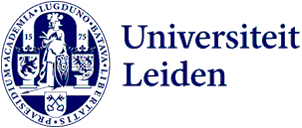Panel discussion
How do international boycotts work for justice? Understanding the ethics and efficacy of the BDS movement
- Date
- Thursday 18 April 2024
- Time
- Address
- Online via Zoom
About the event
After 75 years of Palestinian struggle against Israeli settler colonialism, a new crisis point has been reached since Hamas’ attacks on 7th October 2023 and the ruling of the International Court of Justice (ICJ) that Israel is plausibly committing genocide against 2.3 million Palestinians in Gaza. The result is over 32,000 Palestinians killed, of which more than 13,000 are children, and 1139 killed in Israel. Gaza has been under blockade since 2007, with food, water, and vital utilities strictly controlled by Israel. In the West Bank, there are over 450 Palestinians killed, increasing Israeli settler violence, and rapid dispossession of Palestinian land.
Many people and institutions across the world are calling for boycotts, divestment, and sanctions as nonviolent measures to end Israel’s system of colonial oppression and to end Western complicity in what the prominent Israeli scholar of genocide, Raz Segal, has called ‘a textbook case of genocide’ as early as October 2023. Boycotts, divestment, and sanctions do not exist in a vacuum, but have historical precedent. Most famously, such approaches were used effectively by civil society and public actors to pressure South Africa into ending apartheid. In parallel, divestment projects have been underway for some years now in relation to the fossil fuel industry, with some universities committed to cutting financial ties with corporations causing the most harm to colonised peoples and our environment. On the other hand, sanctions have also been used as weapons of war by states to cause devastation for citizens of target countries. Saudi Arabia’s blockade of Yemen, with support from the US and UK, has led to a famine and the loss of countless lives.
This event, hosted by the Decolonising Collective Leiden, seeks to foster a conversation about the history, ethics, and efficacy of boycotts, divestment, and sanctions as modes of the colonised struggling against colonial violence. How and when have they served justice? In using such methods, how do activists and scholars think critically and practically to ensure just aims? What has been the historical record on their success? In discussing these broader questions, the event will explore the current BDS movement and how it is mobilising globally to realise Palestinian self-determination.
About the panel
The panel includes the following experts:
- Omar Barghouti, founding member of the Boycott, Divestment and Sanctions (BDS) movement for Palestinian rights, human rights defender, and a recipient of the 2017 Gandhi Peace Award.
- Shahd Hammouri, Lecturer in Law at the University of Kent in the UK, with a focus on critical approaches to business and human rights, particularly in the context of war.
- Adri Nieuwhof, human rights advocate, former anti-apartheid activist at the Holland Committee on Southern Africa, and writer for The Electronic Intifada.
- Sami Hermez, Associate Professor of Anthropology at Northwestern University in Qatar and lead campaigner for the successful academic boycott of Israel implemented by the American Anthropological Association.
The discussion will be moderated by Densua Mumford, Assistant Professor of International Relations at the Leiden University College and committee member of the Decolonising Collective Leiden.
Registration
Please register via this event through the button below. Registrants will receive the relevant Zoom link one day before the event.
